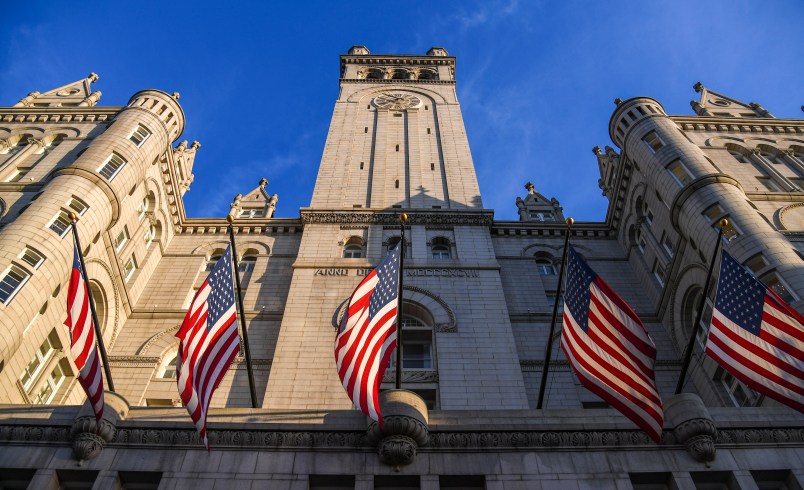The Supreme Court declared emoluments cases against former President Trump moot on Monday, closing the door for now to the long-running and unresolved question of whether it was constitutional for the former President to reap profits from his businesses while in office.
The move marks a victory for Trump, who countered lawsuits and investigations into his personal finances by dragging out the process as long as possible.
In the emoluments cases, which alleged that President Trump violated a constitutional provision banning the receipt of profits from foreign government officials, the courts handled the matters at a glacial pace. The three lawsuits alleging that Trump violated the clause, one brought by the D.C. and Maryland attorneys general, were filed in 2017.
The Supreme Court’s decision also allows questions about the Emoluments clause of the Constitution to remain unresolved. Various appellate and districts courts differed over whether Trump’s continued ownership of his D.C. hotel constituted a violation.
Earlier presidents had given up business interests, with Jimmy Carter famously divesting from his lucrative Georgia peanut farm before entering the White House.
But the failure to address lingering questions over whether the Emoluments clause bans private profit from foreign governments while in office means that the question will remain unresolved for any future President who enters office with substantial private business interests.



